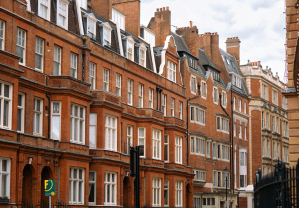
A Christian debt charity has warned that the poorest households in the U.K. will suffer as colder months approach, following a new increase in national energy costs.
Regulator Ofgem announced on Thursday, Aug. 27, 2025, that the energy price cap will rise 2% beginning Oct. 1. The cap limits how much suppliers can charge per unit of energy and for daily standing charges.
Christians Against Poverty (CAP) condemned the increase in a statement, warning of a “deepening energy debt crisis” for low-income families. CAP’s Chief Executive Officer Stewart McCulloch said many people already face severe hardship from unaffordable energy bills.
“The reality for the thousands of people we serve each year remains desperate, and many millions across the U.K. are already in crisis, unable to afford basic essentials like keeping their homes warm and the lights on,” McCulloch said. “This news builds on the recent disappointing news on inflation and particularly food inflation.”
CAP said millions of households on the lowest incomes will struggle to afford their bills this winter.
Ofgem attributed the price increase to volatile energy markets and the government’s expansion of the warm home discount, which now covers 6 million households. To cover the additional cost, all billpayers contribute through higher standing charges, CAP said.
“Despite the expansion of support, the combined effect of today’s 2% rise following the 6.4% rise in February has added an extra £35 per year to an average household’s energy bills, increasing them to £1,755, and potentially pushing more families into hardship,” the statement said.
McCulloch warned that energy debt and unmanageable bills “destroy lives.”
“It robs people of joy, hope, and opportunity, leaving them isolated in damp, dark homes. This isn’t just a financial issue, it’s a severe mental health crisis. Half of our clients tell us they had considered or attempted suicide before seeking our help.”
National polling by CAP shows that in the past 12 months, 23% of adults reduced the amount of time they heat their homes, and 14% went without heating altogether.
“We welcome the warm home discount and other proactive measures for those struggling, but must point out that more is needed,” McCulloch said.
“Our previous research showed that over 11.6 million people in the U.K. have a deficit budget, meaning their income simply doesn’t cover their essential costs. For them, any increase in energy costs is a source of immense financial strain, trapping them in a cycle of borrowing to survive and making it impossible to escape poverty.”
CAP provides free debt coaches, emotional and community support through local church partners, but McCulloch said charitable help cannot be the only solution.
“We must tackle the root causes,” he said. “We reiterate our call on the government to establish an Essentials Guarantee — a protected minimum amount of social security that ensures the basic rate always covers life’s essentials. Support must never fall below a level where people can afford to eat and heat their homes.
“No one should be caught in the vicious cycle of debt because their income does not cover the cost of survival. We urge policymakers to look beyond the numbers and see the human cost. We need decisive action now to ensure everyone has enough to live with dignity.”





